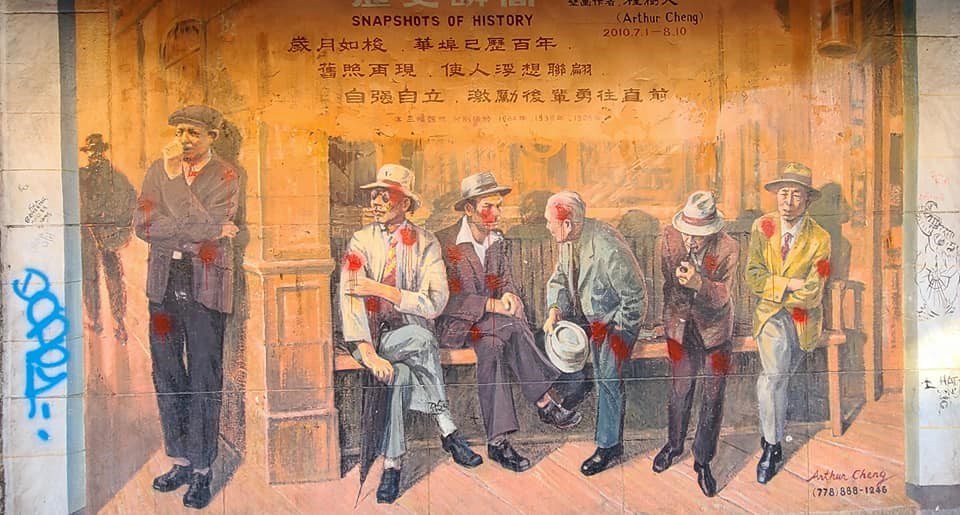A report authored by Stephanie Johanssen, the board’s executive director, was done in response to feedback the board received during an online forum held May 13 to discuss the rise in anti-Asian hate crimes in Vancouver, which soared 717 per cent from 2019 to 2020.
The report compiles recommendations and discussion points for review, including those aimed at getting more victims to report what police have long considered an under-reported type of crime.
“Capturing hate crime data is critical so that police can investigate these crimes accordingly and provide adequate statistics so that effective responses can be implemented in the criminal justice system,” said the report, noting the need for government to be involved in collecting data.
“Data collection is an area government ought to play a role in — to define the parameters and criteria permissible, given privacy considerations.”
The report suggested government change laws to allow police “to collect victimization data at a disaggregated level to include information about identifiable groups.”
Currently, the report added, data is subjectively collected, or collected by self-disclosure due to Freedom of Information and Protection of Privacy Act legislation.
To support such a change, it would be important to have standardized annual surveys to track victimization rates and non-criminal police reported incidents, said the report, which also calls for the creation of a provincial committee comprised of experts from policing, human rights and “equity deserving groups” to review current practices and recommend solutions.
The report cited national statistics from 2014 that showed Canadians self-reported 330,000 incidents perceived as being motivated by bias, prejudice or hate. However, in that same year, Canadians only reported to police 1,295 criminal incidents determined as motivated by bias, prejudice or hate.
In Vancouver, that discrepancy was confirmed by Fred Kwok, the chairperson of the Chinese Cultural Centre, at the May 13 forum when he told viewers that he believed reported hate crimes over the past year only accounted for one-third of all cases.
“I know many friends of mine who never reported the incidents,” said Kwok, who told Glacier Media in a recent interview that many victims believe no action will be taken against perpetrators.
That was one of the reasons identified in the 2014 General Social Survey on Canadians’ Safety report produced by Statistics Canada.
The most common reasons cited for not contacting police were that the crime was minor and not worth reporting, that the offender would not have been convicted or adequately punished or there was a lack of evidence.
Kwok, who is also president of the Chinese Benevolent Association, said the increase in hate crimes against Asians occurred after then-U.S. president Donald Trump began referring to COVID-19 as the “China virus.”
In the report, the VPD acknowledged that not all victims want to report a hate crime to police because of “perceived barriers and concerns” related to law enforcement. There needs to be a way, the report said, for citizens to report crimes through another avenue other than police such as the E-Comm 911 service.
VPD statistics for the first three months of this year show 15 reports of anti-East Asian hate crime incidents, compared to nine last year and four in 2019 for the same period. The spike in reports occurred two months after the pandemic was declared, with a combined total of 50 in May and June 2020.
Since that spike, police have arrested individuals connected to hate crimes, including a man who allegedly scrawled hate messages on the cultural centre and another man who was captured on video throwing an elderly Asian man to the ground.
Police say they are also investigating an incident where a person or persons vandalized a mural in Chinatown sometime in June. The three-panel mural on the side of a building at Columbia and East Pender streets was marked up with blotches of red paint, which appeared to depict bullet wounds on the images of Chinese pioneers.
Recently, the VPD added forms to its website in traditional and simplified Chinese for victims of hate, prejudice or bias to fill out. Forms are also available in Japanese, Tagalog, Vietnamese, Korean, Persian, Arabic and Punjabi.
The name and contact information for a VPD hate crimes investigator — Detective Constable Gagan Luddu — was also recently added to the department’s website.
Though anti-Asian hate crimes are on the rise, police data for Â鶹´«Ã½Ó³»released prior to the pandemic shows Jewish, Muslim, LGBTQ2S and Black people being targeted disproportionately.
Indigenous, South Asian, West Asian, Arab, Buddhist, Sikh, Hindu, Jehovah’s Witness, Protestant, Catholic and “multiple races/ethnicities” were also captured in the data posted on the VPD’s website in 2019.
Types of crimes or incidents most commonly investigated are related to graffiti, harassment, assaults and suspicious circumstances, according to police.
Thursday’s police board meeting begins at 1 p.m. and will be livestreamed on the board’s website. The full report on combating hate crimes
@Howellings



